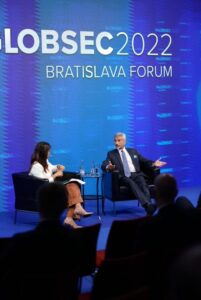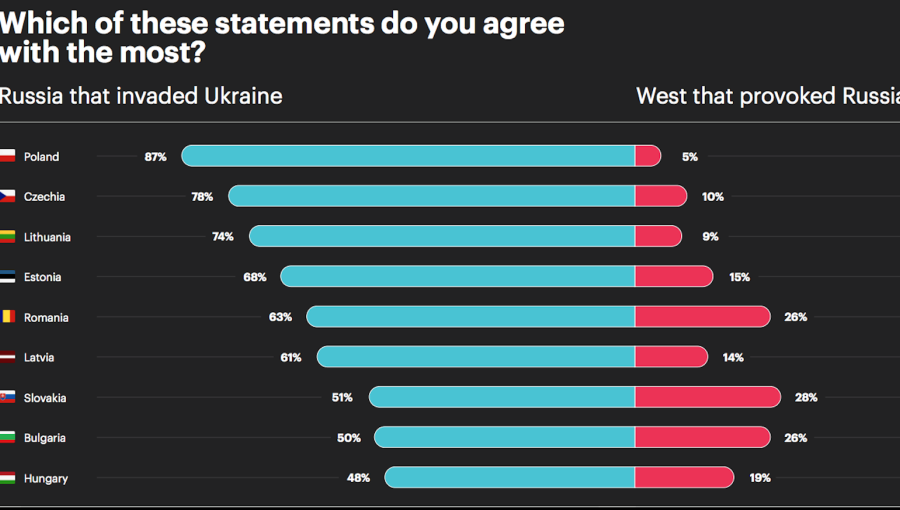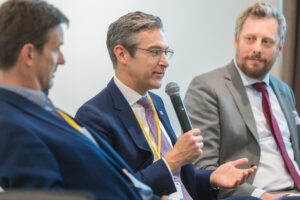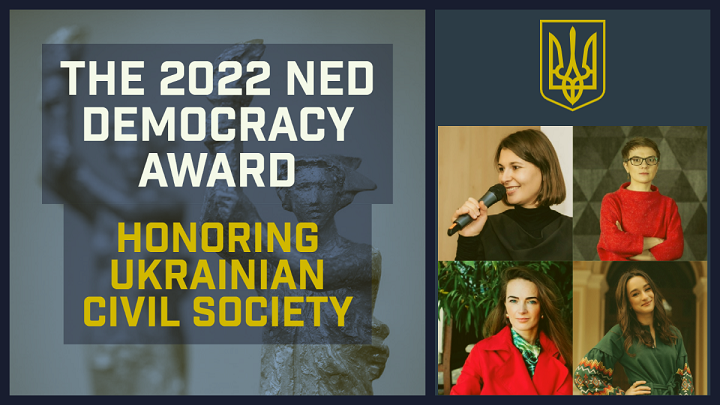This year’s Globsec Bratislava Forum takes place “on the frontline of democracy,” said the group’s president Robert Vass. Just 500km away, “people are paying the highest price for values that we take for granted,” he said.
It is the EU’s “moral duty” to admit Ukraine as a member state, said European Commission President Ursula von der Leyen (above).
“I think that it is not only in our strategic interest, but it is our moral duty to make it possible that they join our European Union, and that we pave the path towards our union,” she told the GLOBSEC 2022 Forum. Supporting Ukraine’s accession to the European Union “is not a burden, it is our historic responsibility.”
To restore peace in Europe, we must continue our support for Ukraine, said Zuzana Caputova, president of Slovakia. So that in its negotiations with Russia, the Ukrainians can decide on the nature of their relations w/ Moscow freely, and not under the barrel of a gun.
The character of the war means “we have different needs now,” said Ukraine Defense Minister Oleksii Reznikov.
 “Without free Ukraine there will be no free Belarus,” said Sviatlana Tsikhanouskaya, the leader of the Belarusian Democratic Movement. “But you cannot solve Ukraine and forget Belarus. Without free Belarus there will never be free Ukraine, there will always be a threat,” she told a panel of “Struggles on the Frontline: Can Democracies Stop Tyranny?”
“Without free Ukraine there will be no free Belarus,” said Sviatlana Tsikhanouskaya, the leader of the Belarusian Democratic Movement. “But you cannot solve Ukraine and forget Belarus. Without free Belarus there will never be free Ukraine, there will always be a threat,” she told a panel of “Struggles on the Frontline: Can Democracies Stop Tyranny?”
Russia’s invasion of Ukraine has led more Central and Eastern Europeans to see it as a threat, and has boosted support for EU and Nato membership, according to a regional opinion poll published by Globsec, the Slovak security think-tank. However, close to half of respondents in Hungary, Bulgaria and Slovakia do not place primary responsibility on Russia for the war in Ukraine, say reports.
The Globsec Trends 2022 poll – conducted in Bulgaria, the Czech Republic, Estonia, Lithuania, Latvia, Hungary, Poland, Romania and Slovakia at the end of March – shows that only in Bulgaria and Hungary has there not been a big increase in those perceiving Russia as a threat. Some 57% of Bulgarians still do not see Russia as a threat, while only 45% of Hungarians view Russia as a threat, while 35% there see it as a strategic partner.
 “The distorted view of certain segments of populations towards events in Ukraine, combined with potential economic hardship ahead, could leave these vulnerable groups as potential targets for populist and autocratic leaders,” Globsec concluded, adding that some 54% of Slovak respondents believe conspiracy theories that secret groups rule the world.
“The distorted view of certain segments of populations towards events in Ukraine, combined with potential economic hardship ahead, could leave these vulnerable groups as potential targets for populist and autocratic leaders,” Globsec concluded, adding that some 54% of Slovak respondents believe conspiracy theories that secret groups rule the world.
“In addition, Slovakia excels in the sense of threat. Approximately half of the respondents in Slovakia feel that their values and identity are threatened by the West or migrants, “added Dominika Hajdu, who runs the Center for Democracy and Resilience.
All democratic states should continue and increase their efforts in providing humanitarian aid and help Ukrainians fleeing their country as well as those internally displaced, said forum participants. The forum “expressed unwavering solidarity and support to the brave Ukrainian people, who are defending not only their own, but our common European freedom, values, and future.”
Moldova is not seeking shortcuts in its bid to join the European Union, President Maia Sandu said on Friday, in the wake of Russia’s Feb. 24 invasion of Ukraine. “Just granting candidate status doesn’t mean accepting us into the EU,” she told the GLOBSEC 2022 Bratislava Forum. “We are not looking for a shortcut, we realize we have a long way to go.”
RT @GLOBSEC: “Bad guys are winning at the moment. But I am optimist as M.Albright was: ‘Great #Revival of #Democracy.” @DamonMacWilson @NEDemocracy #GLOBSEC2022 #BratislavaForum pic.twitter.com/Ye4AznwNAN
— Vladimir Vano (@vladimirvano) June 3, 2022
“Democracy is like oxygen, you don’t appreciate it until you don’t have enough,” said former Estonian president Kersti Kaljulaid.
 The world’s autocrats may appear resurgent, but such hegemony isn’t sustainable, NED President and CEO Damon Wilson (right, center) suggested.
The world’s autocrats may appear resurgent, but such hegemony isn’t sustainable, NED President and CEO Damon Wilson (right, center) suggested.
The “bad guys are winning at the moment,” but he remains an optimist like his mentor, former US Secretary of State Madeleine Albright.
Do we have a Putin problem or a Russia problem? was another key question raised at the forum, said former Swedish prime minister Carl Bildt. “Both, you can argue. Putin was the one that launched this war, and it’s doubtful that anyone else would have done it. But then Russia has to decide whether it seeks to be a nation or an empire,” he said.
The resilience of Ukraine’s civil society impressed Katarina Mathernova, the European Commission Deputy Director General for Neighborhood and Enlargement.
“It is amazing how civil society has consolidated and strengthened in the face of the war,” she said.








